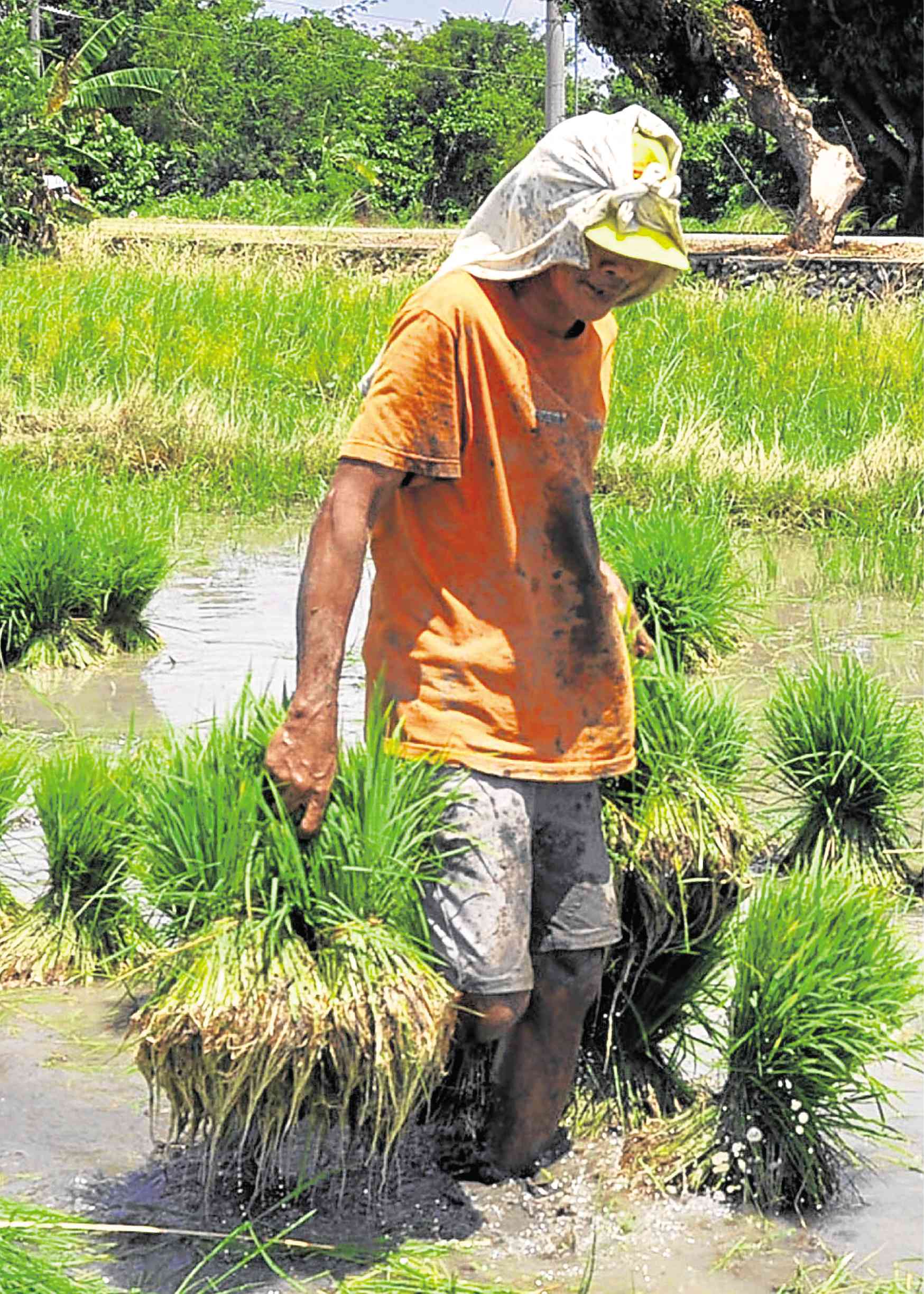
A farmer in Pangasinan Willie Lomibao
LA TRINIDAD, Benguet, Philippines — In the wake of the passage of the implementing rules of Republic Act No. 11203, or the rice tariffication law, Cordillera farmers have sought for amendments to include subsidy on farm inputs.
Half of the rice competitiveness enhancement fund focuses on farm mechanization, but there is no direct mention of aid for farm inputs such as seeds and fertilizers, said Remy Albano, president of Cordillera Federation of Irrigators Associations (FIA-CAR).
Under the new law, the rice fund has an annual allocation of P10 billion for six years and 30 percent of this will go to the development, propagation, and promotion of inbred rice by the Philippine Rice Research Institute.
“Even if farms are mechanized but input prices continue to rise, we remain losers in the trade,” said Albano, who is also vice governor of Apayao.
He said farmers in Cordillera need to shift to hybrid rice to be at par with other rice-producing regions and increase yield per hectare since they can no longer expand their farms.
Hybrid rice varieties produce higher yield and are more resistant to diseases and insects. However, they are more expensive than the commonly used inbred variety.
Albano said farmers cannot use hybrid rice seeds harvested from the previous season because these have already lost vigor, a genetic characteristic which results in lower yield.
“This means farmers need to allocate money to buy seeds every season,” Albano said.
In recent years, prices of fertilizers have also significantly increased along with other farming commodities, he said, adding that this has forced many farmers to resort to “credit-for-harvest” offers from rice traders or pawn their fields for immediate cash need.